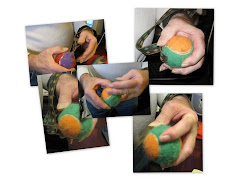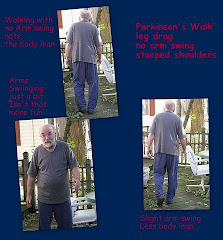 While smoking may seem to be a modern form of usage, marijuana has long been used as a tea, an edible extract, as a paste or powdered. That history goes back almost 5,000 years in China and India where it was used as a painkiller to treat chronic pain. The Greeks and Romans did use cannabis for treatment of pain, rheumatism and gout although the Romans who certainly knew about excess were concerned about its effect on sexual performance if used too much or too often. In Egypt there is evidence that it was used to treat glaucoma as well as pain. Tomb evidence points to applications orally, rectally, vaginally for labor pain; dermally, apparently inserted in the eye area and also smoked.
While smoking may seem to be a modern form of usage, marijuana has long been used as a tea, an edible extract, as a paste or powdered. That history goes back almost 5,000 years in China and India where it was used as a painkiller to treat chronic pain. The Greeks and Romans did use cannabis for treatment of pain, rheumatism and gout although the Romans who certainly knew about excess were concerned about its effect on sexual performance if used too much or too often. In Egypt there is evidence that it was used to treat glaucoma as well as pain. Tomb evidence points to applications orally, rectally, vaginally for labor pain; dermally, apparently inserted in the eye area and also smoked.The reintroduction of marijuana to the western world occurred in the mid 1600s when it was
 made into a paste or plaster for for rheumatism, gout, burns and tumors. Two hundred years later Dr William Brooke O'Shaughnessy, an Assistant-Surgeon and Professor of Chemistry in the Medical College of Calcutta learned about cannabis when practicing in India. Although the areas he explored did not involve Parkinson's, he did report some success with acute Rheumatism in a paper he presented in 1839 on On The Preparations of the Indian Hemp, or Gunjah
made into a paste or plaster for for rheumatism, gout, burns and tumors. Two hundred years later Dr William Brooke O'Shaughnessy, an Assistant-Surgeon and Professor of Chemistry in the Medical College of Calcutta learned about cannabis when practicing in India. Although the areas he explored did not involve Parkinson's, he did report some success with acute Rheumatism in a paper he presented in 1839 on On The Preparations of the Indian Hemp, or GunjahIn 1860 the Ohio State Medical Society issued a report on Cannabis Indicia by the Chairman on Cannabis Indicia, Dr R R McMeens, with contributions of several doctors and referencing Dr O'Shaughnessy as well. In it are descriptions of using cannabis to treat epilepsy with some success, glottal spasms and spasming of fingers and toes as well as asthma. On page 8 there is a reference to using it to treat "shaking palsy."
The Indian Hemp Drugs Commission (1893-94) may have been established more as an effort to find ways levy taxes, but it was extensive, listened to an enormous amount of testimony from a broad spectrum of society and ultimately did indicate that it found no evil in moderation and indeed that hemp-cannabis was an effective treatment for many conditions.
To some extent the history of marijuana in the 20th century became a follow the money situation. Until 1937 there were more than 25 medicines on the US market which utilized marijuana. It was not until the Marijuana Tax Act of 1937 prohibited marijuana that these were no longer available. While other pharmacopoeia were already replacing these medications, there was still a significant market and one which might have continued to develop. At the same time the use of hemp oil for paint and varnishes was usurped by DuPont petrochemicals.
Since the controlled Substances Act of 1970 successfully made its dishonest claims law, marijuana was quietly ignored as having medical value and development potential. What does this say about our national ethos that we could accept the mistruths, the lies? the sellouts? Is it also a commentary about our fear level? Not just the fear of our own diseases or physical conditions but rather the fear of people with diseases and conditions? Our fear of ourselves and our government? The fear that we will lose everything?
While people are going to hold their residual prejudices and studies will be limited, that should not exclude serious research. It should be noted that people are not looking for a cure but for symptomatic relief from conditions which affect not only the patient but also the caregiver and the families. Something to restore-improve quality of life.
A Most Interesting Book
September 2011 update














thanks for this. I'm doing intense research on alt treatment for my Dad who has PD in Seattle. Your last paragraph nailed it on the head. He is 60 and I want him to have a higher quality of life. The synthetic meds he is taking makes him so confused and its hard to communicate, i hate it!! I am a pro-cannabis person. I just reserved that book at the library. thank you
ReplyDeleteThank you for stopping by to take a look.
ReplyDeleteMake sure to work with a list of every medication and nutritional supplements including dosages which you Dad is now taking. Sometimes adjusting the timing can be significant.
If he is confused, this is a cognitive issue to be discussed with his neurologist. Consider that there may be other conditions such as urinary issues and lack of fluid intake which are upsetting his system - it might not be the meds alone.
Most certainly his pain level should also be considered and the ease of his daily living.
I wonder if Mohammed Ali, even at the late stages of his condition, could benefit from cannabis. Islam permits the use of cannabis the natural herb for prescribed medical benefit, although there are some extreme views on it within that greater social milieu of that religion. There is the evidence of restorative action in the hippocampus. I hope he gets word of this post somehow. The greatest was in Egypt and this writer was too very recently, where the topic is under much discussion from the standpoint of what is permitted to a Muslim. Peace be upon you Mohammed, you're the greatest.
ReplyDelete